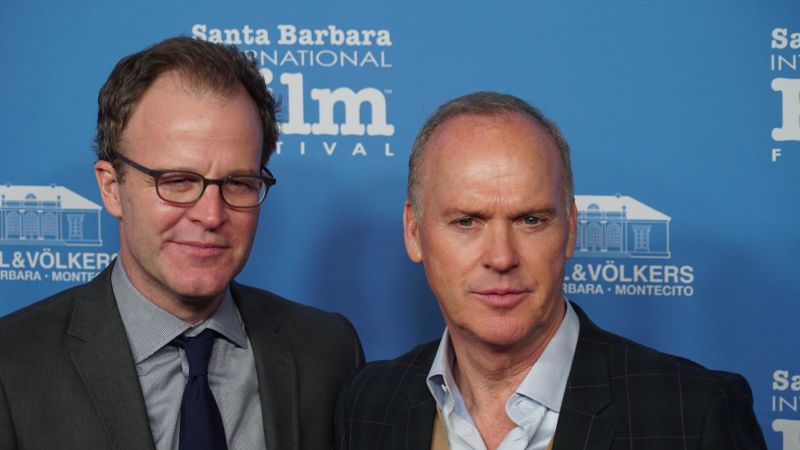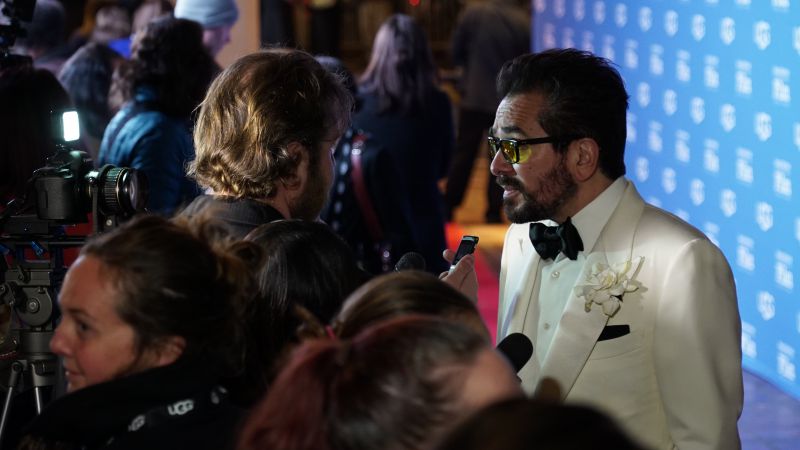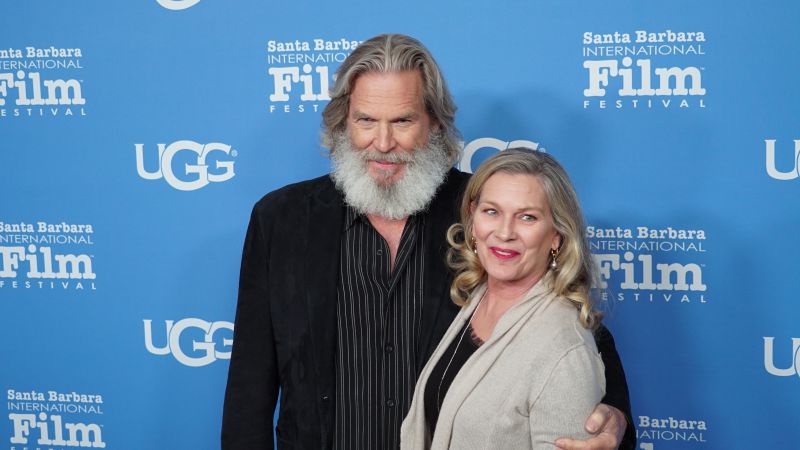|
|
||
|
Pro Tools
FILMFESTIVALS | 24/7 world wide coverageWelcome ! Enjoy the best of both worlds: Film & Festival News, exploring the best of the film festivals community. Launched in 1995, relentlessly connecting films to festivals, documenting and promoting festivals worldwide. Working on an upgrade soon. For collaboration, editorial contributions, or publicity, please send us an email here. User login |
Oscar Nominated Producers Tell All in Santa BarbaraThe panels at the Santa Barbara International Film Fest include talent and crew from some of the year's best movies and they're always one of my favorite parts of the festival. This year's Movers and Shakers Panel included: Finola Dwyer of Brooklyn, Steve Golin of Spotlight, Ed Guiney of Room, Jeremy Kleiner of The Big Short, and Mary Parent of The Revenant. Here are some takeaways:
Ed Guiney: "It has a really big impact on the life of your movie. We went from 80 prints to 800 prints the week after the Oscar nominations came out. And our box office has doubled. It's a challenging subject matter and its hard to get people to go to the theatre and see it. We were really confident that once people engage with the film and see it it’s a really powerful movie and very life affirming movie. Having the recognition has had an incredible impact on our movie and we're incredibly grateful for that."
Oscars so White, Male: John Horn: "How do you guys go about making a wider array of stories so that people can see their stories on film and be validated?"
Kleiner: "It’s not just an important conversation but a necessary one...I think as Alejandro and my business partner said in interviews, the Academy is at the end of a long chain of decision making. As producers, it's our responsibility to pursue a wide range of stories and not have an ideological rigidity about what is gonna work and not work, and not internalize those ideas about what kinds of stories deserve to be told."
Golin: "The whole community needs to look at what the whole world looks like and what America looks like and make movies that are representative of that. This controversy has been a wake up call. It's unfortunate that it takes a controversy to get there but. … if the movies themselves are more diverse I think the voting will take care of itself."
Kleiner: "It seems the consequences of not hitting a home run are greater if you’re a female director, minority or person of color. It’s hard as it is to get movies but there are examples of people where the standard is higher."
On Producing:
John Horn: "If we run on the assumption that actors get all the glory, directors get all the credit, what do producers get?"
Parent: "I love the process. I love being able to support great artists and the most satisfaction I get is having someone tell me that my support has made a difference, knowing that I’m in there helping towards achieving a goal. I don’t think any of us are glory seekers I don’t think that's why we do what we do. I think we also get a lot of out of it."
Kliener: "I think it's the greatest job, maybe for a combination of reasons that are not all entirely rational. When I saw Do the Right Thing as a 13 year old...the affect it had on my life somehow changed the trajectory of what I wanted to do. To be a part of these films that may have an impact on the way people think, and with our film which I think is about values, and what we as a culture value and what our incentive structures are, if that somehow could make its way into someone's mode of thinking, and scramble their brain in such a way where they might make a distinct choice like that, I think we live and hope for those sorts of things happening. Thats not rational maybe, but it’s exciting.
Guiney: "I like the company of people in this industry. They’re the people I gravitate to and people whose values I share. I guess it is a very exciting thing to be involved in an enterprise where you take something as wonderful and powerful as Emma Donoghue's book and to try and give cinema-goers a similar experience, to bring that piece of work to a bigger audience and different medium-- that’s been incredibly exciting. I’ve never really worked in another business but i think it’s a business where people are tested, and their loyalties are tested, and their goodness as people is tested, and I think when you really see that you form very strong bonds with people, and that idea of working in a family really resonated for me in terms of my professional life."
Golin: For me its about storytelling...finding the story we want to tell, finding the writer, finding the filmmaker, putting the actors together, and the satisfaction of doing that process from the ground up. Generally I get involved in movies from the ground up and see it all the way through the end. In the case of Spotlight we knew it was going to be very difficult movie to get made but we felt it was very important. As I get older I want to much more be involved in movies that have social significance. I don’t really care that much about who gets the credit. The actors and director deserve it; they are the reason movies get made and the ones who do the bulk of the work. But the satisfaction of telling the stories and knowing that it wouldn’t happen without us is enough."
Dwyer: "Working with talented, inspirational people is a privilege. The satisfaction of taking something all the way. It doesn’t get better than that."
Inspiring Words
John Horn: There are perhaps some aspiring producers in the audience. You’ve made it sound like a pretty decent career. What advice would you offer?
Parent: "It is the greatest job, but you have to be passionate and you have to believe and you can’t give up. A lot of times making movies, more often than not it will fall apart or it won’t happen...being a dog with a bone, and also work with really talented people. Whether its people that are already successful, or discovering new voices."
Kleiner: "If you feel as if you don’t fit into any other facet of society (a laugh from the crowd) then you’re probably on the right track. Another thing is... it’s a mysterious vocation, the reasons for success are very peculiar and almost don’t obey rational laws. I think we’ve all benefited from fortunes smiling on us in strange ways. The ways that things fall into place are not always clear. Theres a lot of emphasis placed on the individual will, and I think that is a strong component of this. The other part is somehow being in alignment with other things like where the culture is going, and what stories seem to be emerging as stories worth telling. The will, but also that humility and receptivity to other factors as well."
Guiney: "Make things. So many people spend so much time talking about making things. I've come up with my contemporaries in college. We were bound by a mutual interest and passion. People think money is the limiting factor in our business, and it is, but in a way the rare thing that’s hardest to find is talent. I almost think of producers as prospectors for talent- the new voices, people with utterly interesting things to say. Something that’s going to stand out. For producers, try to find those people around you who you think have something interesting to say.
Golin: "The most important thing is the story. There’s a lot of money out there frankly. It’s tougher than it used to be, but really its about passion, about what the story is. You have to really be passionate because its not going to be easy. And Jeremy's right sometimes things come together, but its really about being very tenacious, not taking no for an answer, being very thick skinned because generally you’re rejected many many times. It’s about being very patient and very impatient simultaneously. Generally it makes sense to have a few things going at one time. You need tenacity."
Dwyer: "And take risks. With Brooklyn, people said 'Oh we’ve had those immigration stories,' but I said 'we’ve never had it from a female perspective.' But we really really believed in it. Take risks, don’t take no for an answer... Take risks, its one of the best things you can do."
18.02.2016 | Elisabeth's blog Cat. : PEOPLE
|
LinksThe Bulletin Board > The Bulletin Board Blog Following News Interview with IFTA Chairman (AFM)
Interview with Cannes Marche du Film Director
Filmfestivals.com dailies live coverage from > Live from India
Useful links for the indies: > Big files transfer
+ SUBSCRIBE to the weekly Newsletter Deals+ Special offers and discounts from filmfestivals.com Selected fun offers
> Bonus Casino
User imagesAbout Elisabeth Bartlett Elisabeth Bartlett Elisabeth Blogging about the festival scene from Los Angeles View my profile Send me a message The EditorUser contributions |





























